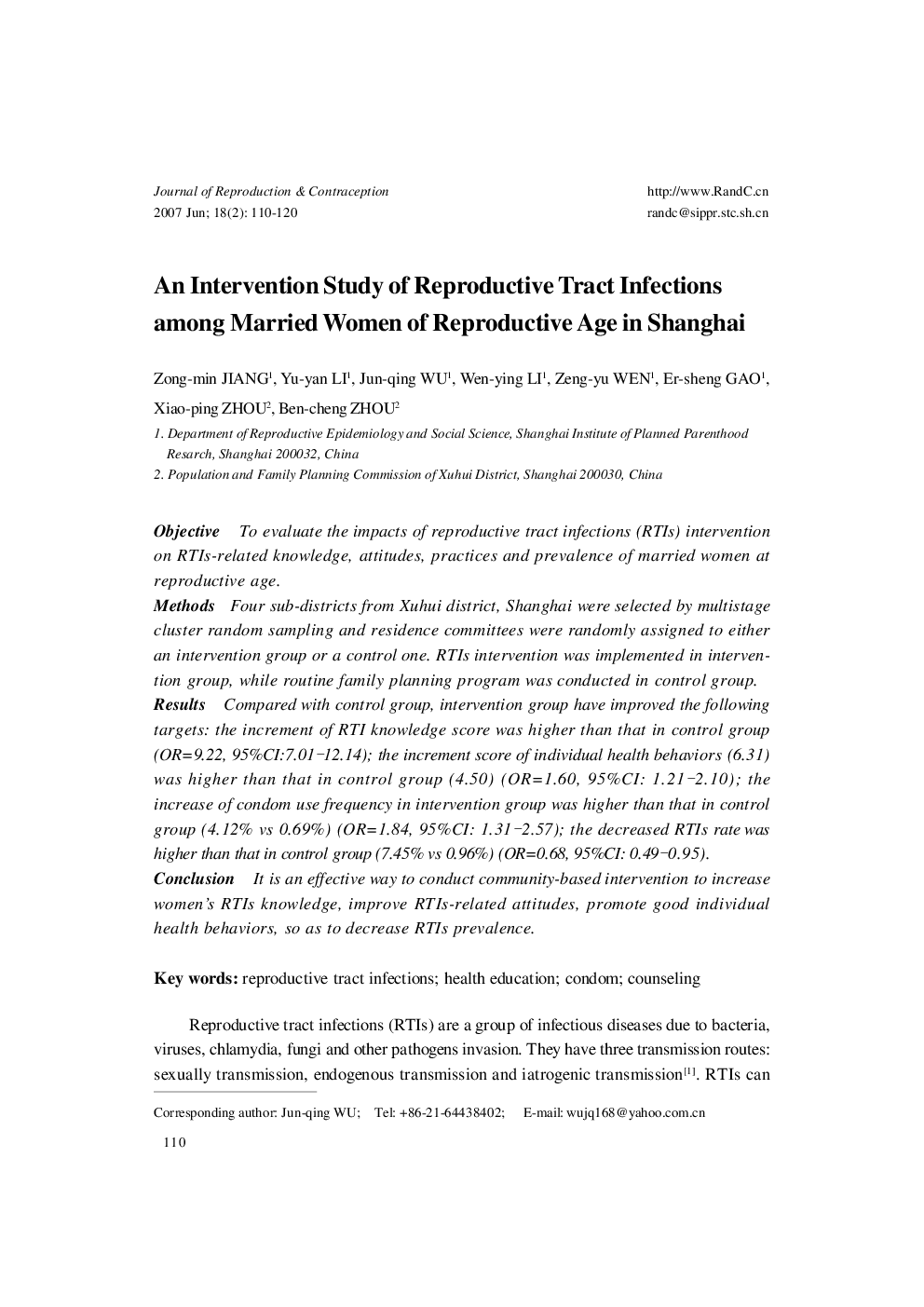| Article ID | Journal | Published Year | Pages | File Type |
|---|---|---|---|---|
| 3961101 | Journal of Reproduction and Contraception | 2007 | 11 Pages |
ObjectiveTo evaluate the impacts of reproductive tract infections (RTIs) intervention on RTIs-related knowledge, attitudes, practices and prevalence of married women at reproductive age.MethodsFour sub-districts from Xuhui district, Shanghai were selected by multistage cluster random sampling and residence committees were randomly assigned to either an intervention group or a control one. RTIs intervention was implemented in intervention group, while routine family planning program was conducted in control group.ResultsCompared with control group, intervention group have improved the following targets: the increment of RTI knowledge score was higher than that in control group (OR=9.22, 95%CI:7.01–12.14); the increment score of individual health behaviors (6.31) was higher than that in control group (4.50) (OR=1.60, 95%CI: 1.21–2.10); the increase of condom use frequency in intervention group was higher than that in control group (4.12% vs 0.69%) (OR=1.84, 95%CI: 1.31–2.57); the decreased RTIs rate was higher than that in control group (7.45% vs 0.96%) (OR=0.68, 95%CI: 0.49–0.95).ConclusionIt is an effective way to conduct community-based intervention to increase women's RTIs knowledge, improve RTIs-related attitudes, promote good individual health behaviors, so as to decrease RTIs prevalence.
